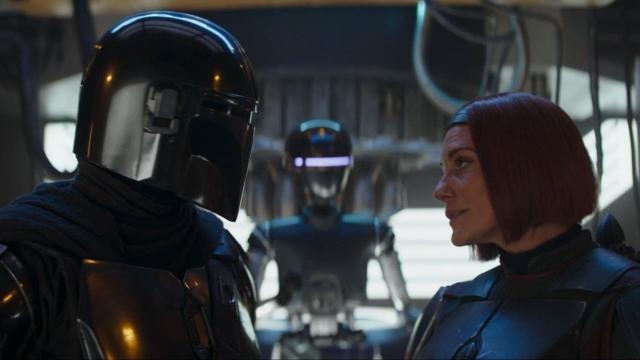Are the droids of Star Wars people? From the moment Wuher glowered at C-3PO and R2-D2 and snarled “we don’t serve their kind,” the galaxy far, far away has danced around the powder keg of its android heroes and villains as a fully fledged sentient species. But the more The Mandalorian has engaged with the idea, the more it has put Star Wars’ proverbial foot in its mouth.

In its earliest days, The Mandalorian at least wanted to try and present an intriguing twist on the question of droid personhood. Its protagonist, Din Djarin, was an orphan of the Clone War and harbored a deep-seated resentment of droids, especially combat droids, due to a lingering traumatic experience surviving a Separatist assault that claimed the rest of his family. From the get go, we see Din play with this resentment as, in his career as a bounty hunter, he is repeatedly confronted with the usage of droids, whether as the facilitators of trade or in his unlikely partnership with the assassin droid/bounty hunter IG-11. As Din proceeds to have his worldview challenged over the course of the first season thanks to his adoption of the young Grogu, in turn we see his ability to move on from the familial trauma that created his resentment of droids in the first place. It’s a growth of character that climaxes on an emotional beat during the season’s finale, where Din is willing to have his new ward protected by IG-11, and to feel a profound sense of loss when the droid chose to sacrifice itself to protect its friends in turn.
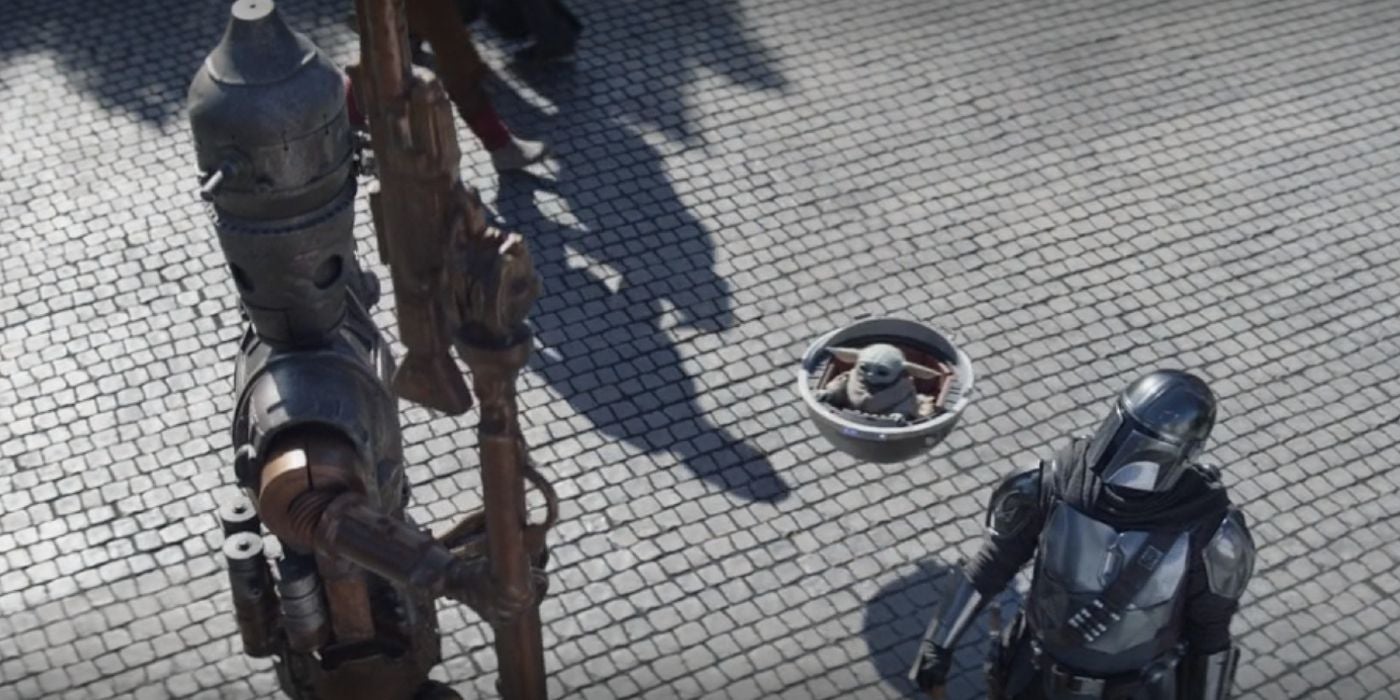
Fast forward to season three and things have jarringly taken a turn in Din’s attitude to droids. The latest season perplexingly opens with Din, reunited with Grogu after a brief separation that was resolved in an entirely different TV show, possessively insistent that IG-11 was the only good droid in the whole galaxy. He’s desperate to rebuild the droid as a partner to conduct an exploratory mission to the ravaged planet of Mandalore… a quest Din just completely gives up half an episode later, now apparently just fine to have R5-D4 foisted on him, so long as he can constantly disparage the astromech droid for not being suited for the task Din wanted a former assassin model for. All this is weird for myriad reasons, but they’re no longer the core of The Mandalorian season three’s unhinged approach to droids as an individually realised group of beings — it just sets the stage for it, as Din vacillates wildly between believing in The One Good Droid and then constantly berating the one he’s left with.
That particular indignity was saved for this week’s episode, “Guns for Hire.” The chapter takes Din, Grogu, and their ally Bo-Katan Kryze to the planet Plazir-15, an independent outer rim world where society has been rebuilt to accommodate the pleasures of its organic inhabitants through the rigid employment of a droid work force. While humans and other species on Plazir operate jobs in security and other sectors of administrative governance, we’re told by the planet’s rulers, the Dutchess and Captain Bombardier (noted flautist Lizzo, and noted guitarist Jack Black, don’t worry about it), that the backbone of Plazir’s seemingly idyllic civilisation is a labour force of reprogrammed droids of varying disciplines, including legions of Battle and Super Battle Droids from the Clone War. Upon learning this, and that several droids have begun going haywire and attacking organics, an exasperated Din Djarin — seemingly tired of his former expertise in being asked to do odd jobs for people before they’ll do something for him — suddenly becomes rapt with attention at solving Plazir-15’s droid problems. Not just to get Bo-Katan what she wants (an audience with her former Mandalorian allies who now act as Plazir’s semi-legal defence force), but a chance to get what he wants: an opportunity to kill some Battle Droids.
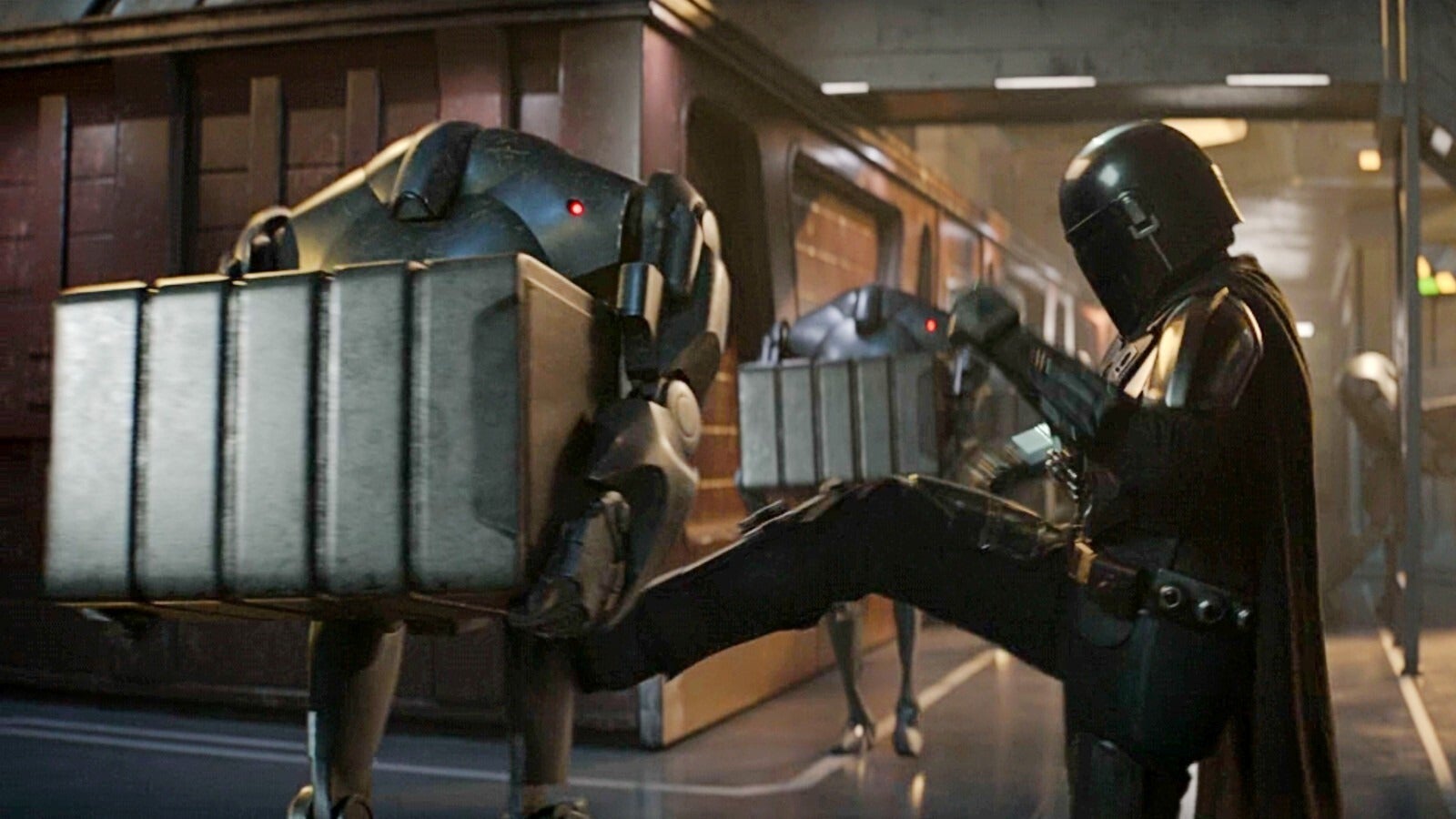
This is far from the haunted man we saw in season one, or even the almost comically grumpy one we saw at the start of the season having to deal with R5. Din almost relishes being granted an opportunity to question and intimidate Plazir’s droid workers on even the slightest suspicion that they could be secretly ready to turn on the organic population. When he and Bo-Katan visit a dockyard staffed by Battle Droids in particular, he goads and interrupts a line of working Super Battle Droids — who are just moving cargo about — until he gets a chance to goad one, kicking it down to the floor again again until it fights back, giving Din and Bo an excuse to chase it down and, eventually, blast it death. Which is what Din wanted, moreso than to further their investigation. He wanted revenge, and he bullied his way to getting it.
It’s all deeply, bizarrely cruel given the undercurrent here of The Mandalorian touching on Star Wars’ fraught relationship with droids as people. Plazir’s life is presented as indulgent, ideal, and idyllic for its organic citizens, and is in turn presented as only being so because droids have become an exploitable subclass of labour. And yet The Mandalorian doesn’t question this, but arguably supports it, at least as far as its hero is concerned — if it means he gets to take out revenge on a few droids along the way, what’s the harm?
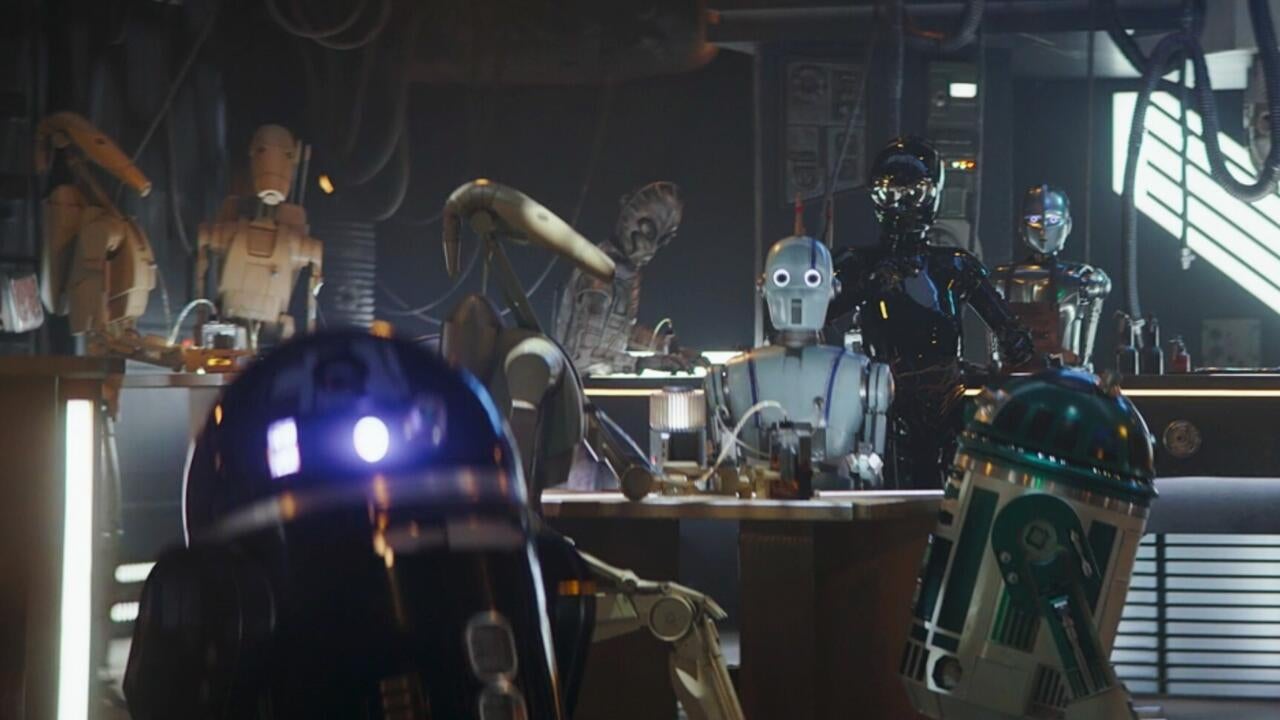
Well, exactly that, because “Guns For Hire” doesn’t see its droid underclass as people at all, even as it goes to great lengths to portray an isolated droid society on Plazir almost unlike anything we’ve seen in Star Wars. These droid workers have lives, social gatherings, places to exist for and among themselves outside of their relationship to labour and to the organics of their world. After scrapping the abused SBD, Bo and Din’s investigation leads them to a droid-only bar called the Resistor, proof of the personhood these beings have outside of their existence as workers, and Din’s immediate response is to go in as the bad cop and intimidate the droid drinkers within as suspects just waiting to give him an excuse to be violent with them.
If I’m framing this as our hero doing something bad, deplorable even, it’s absolutely what The Mandalorian itself is doing to an extent… until it backs off from that immediately, by having the droid owner of the Resistor beg Din and Bo to let him help their investigation. Why? Because it’s all but said that the bartender is “one of the good ones,” and that all droids should want to do on Plazir-15 is be a perpetual servant class to the organic inhabitants because oh, they’re just poor little frail beings who get old and die, and why can’t a good droid who can work forever sacrifice their personhood in exchange to make that life easier? This is what the droids want, not to rebel against their masters as Din and Bo believed, but to root out whatever bad actors among their kind threaten to upend their power balance, or lack thereof, entirely. The bartender helps, Din and Bo uncover sabotage, not rebellion — because droids are tools, not people, social lives be damned — and everything on Plazir-15 is fine to go on as it has.
This is an insane approach for the series to take given everything it had previously tried to say about droid individuality with characters like IG-11. But when it is framed in Star Wars’ long history of treating droids as a minority allegory — from Solo’s droids-rights campaigner L3-37 to the segregation parallel made by Wuher all the way back in A New Hope — it becomes less tonally inconsistent and more just shockingly mean and cruel. Din’s suddenly celebratory attitude in getting to be the bad cop to a bunch of former Separatist droids, the bartender’s adamant belief that his kind doesn’t deserve more rights as the people that keep Plazir going, and that they just all need to know their place — these are all awful, awful things to consider the second you dare to consider that the answer to that question Star Wars has raised for decades at this point (“are droids people?”) should be “yes.” Framed in that messy history around the question of droid sentience, “Guns For Hire” becomes one of the most morally repugnant hours of Star Wars it’s ever produced.
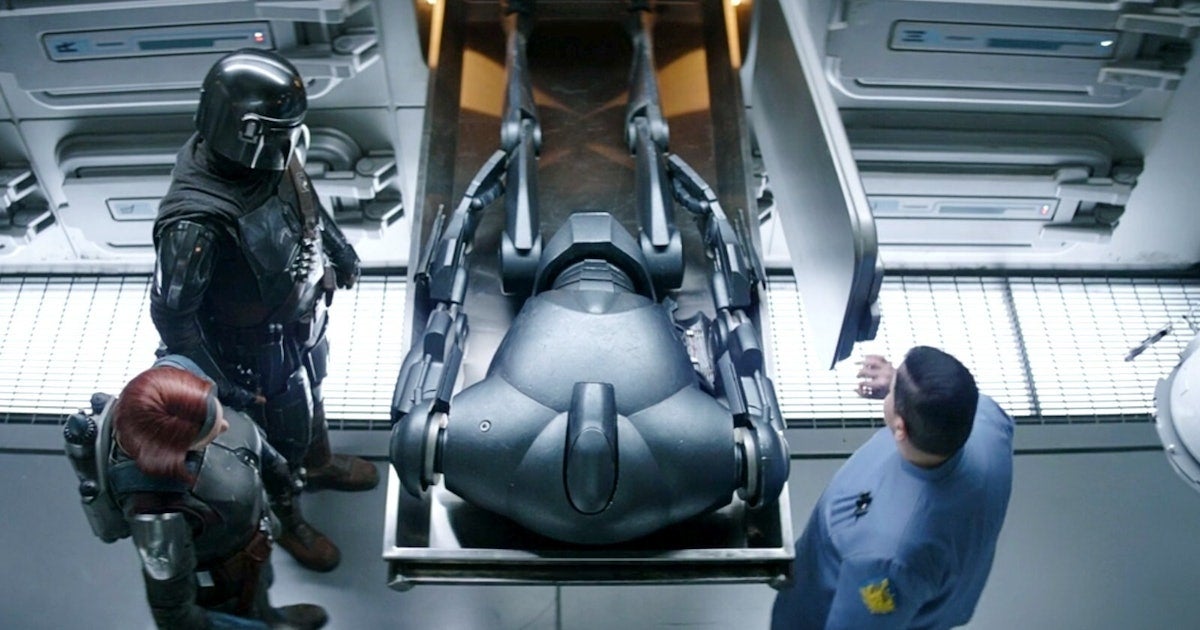
But did The Mandalorian mean to be that shockingly cruel? Probably not. The fact, however, that its creatives were only willing to explore a tough question about the ideology of the galaxy far, far away up to a point that it could ignorantly create moments as cruel as this is arguably far worse than if it had gone into it with intent.
While you’re here, why not check out Gizmodo Australia’s guide to what’s streaming this month on Netflix, Prime Video, Disney+, Stan, Binge and more. We’ve also got one for all the good movies coming out in 2023 if that’s more your thing.
